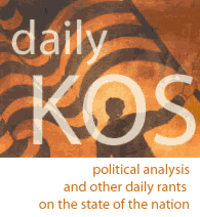One of the most common refrains of TV and newspaper journalism is that the Internet is filled with liars, with criminals, with people who hide their identities and do damage which older media, because they’re vetted, can’t do.
This is utter nonsense. It is pure sophistry.
First, there is no question whatever that the TV and newspaper industries are subject to corruption. The philosophical beliefs of media owners, for starters. And not just at Fox. Every newspaper owner has its politics, and this determines who gets hired, who gets promoted, who gets read.
There is another form of corruption in TV and newspaper journalism, one which is seldom discussed openly. This lies in the nature of their function. The Washington press corps is a small, self-contained village, with no more relation to the real America than any other small, self-contained village. Yet because they talk to policymakers, pundits, and one another — without any of the rest of us in the room — Washington reporters assume they know the "true" story of what’s going on. They don’t. It’s a hall of mirrors they live in, one which reflects their own assumptions endlessly, like the fun house at the end of Orson Welles’ The Lady from Shanghai.
This is true on every beat, by the way. New York financial journalism is a village. Silicon Valley tech journalism is a village. Los Angeles entertainment journalism is a village. All villages impose a form of censorship on their members, a set of assumptions no one questions. I think I’m a much better tech reporter, writing from Atlanta, than I would be living in Santa Clara, because I’m outside the village.
The Internet can also be self-policing in ways other media, so self-referential, regulated, and bound by their owners can’t conceive of.
Here is a good example, a scandal about Dailykos uncovered by…Dailykos. A candidate used a second identity to criticize another candidate, and got caught. This sort of thing happens more often than you might think. The ability and willingness of any site, regardless of politics or content, to police its users and report transparently when folks are playing games is an important marker — it builds credibility for the site as a whole, and forces netiquette on all users.
Not every site does this. Internal law enforcement is an option. How you do it is another option. You can lay down strict rules up-front or, as this site did, use looser rules. What matters is whether you enforce them, not just in letter but in spirit. Users are perfectly free to vote with their mice, not only based on your content, but based on how you run your community. This is becoming a popular issue regarding so-called Web 2.0 sites like Facebook, but it has in fact existed for years, and goes far beyond the simplistic issue of child predators.
In the Internet media, reporters come from anywhere, and pundits come from everywhere. We’re not limited to Washington, or New York, or Los Angeles, or Silicon Valley. Internet media are also capable, if they choose, of policing themselves, in ways traditional media can’t and won’t. Do people feel safe with you, do they find your members credible — these are issues that don’t go outside the studio when it comes to TV. On the Internet they’re daily life.
I have said many times here that the generational thesis we’re moving toward represents more than a political change. It represents a media change. We’re moving from an era defined by TV to one defined by the Internet. TV is doing everything it can to stop that change, but it is helpless.
The revolution will not be televised.











